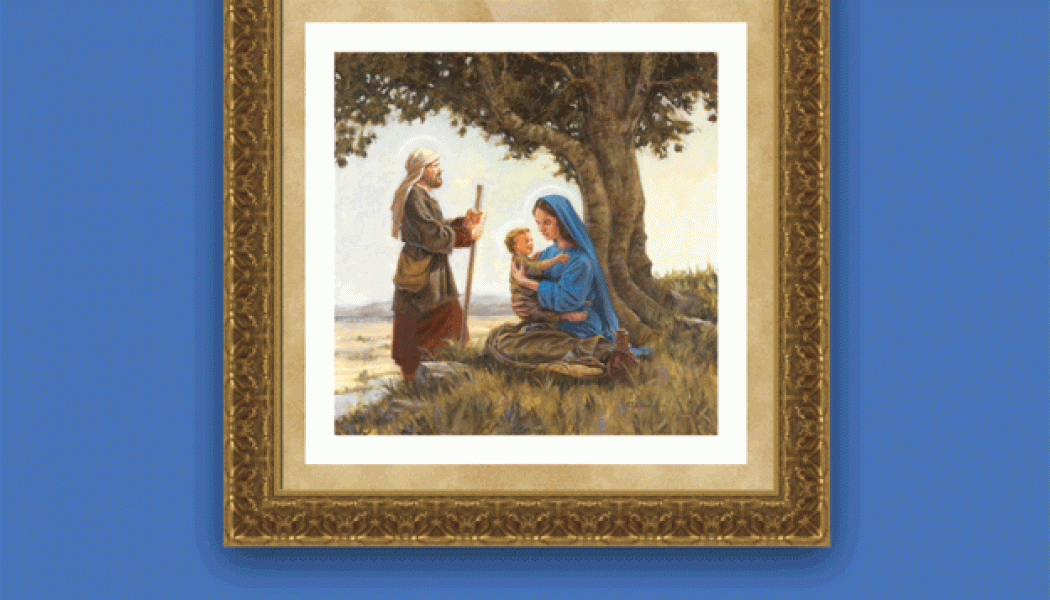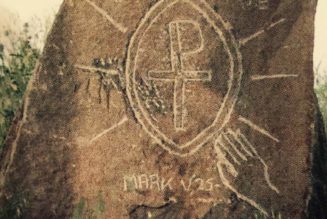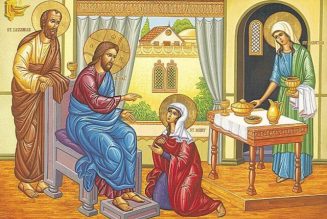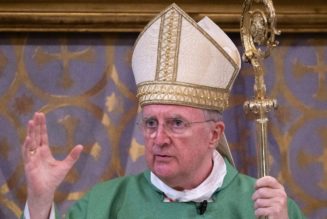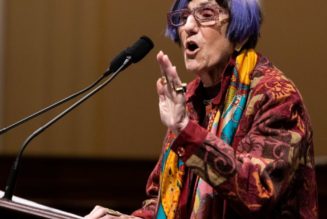By Dr. Jeff Mirus ( bio – articles – email ) | Mar 23, 2021
I am continuing to read through N. T. Wright’s incisive new book on the importance of the person of Christ to what we call “natural theology”. But it brings me face to face with a question that has troubled me for a very long time. I mean the question of the spiritual utility of scholarship. It is not that scholars cannot be spiritually useful, of course (and Wright himself lays legitimate claim to many decades of genuine spiritual utility). But the reality is that most scholars, perhaps especially most famous scholars, are not spiritually useful. Rather, they have gone spiritually astray along with the rest of the culture over which they intellectually preside.
This problem was pressed upon me once again as Wright explored the wrong turns in natural theology, eschatology, and the interpretation of apocalyptic language taken by some of the most famous secular philosophers and Christian theologians during the past hundred or so years. I think here of theologians whom most readers will recognize as having made a considerable cultural splash in the first half of the twentieth century, including Albert Schweitzer, Rudolph Bultmann, Karl Barth, and of course the Catholic Teilhard de Chardin. Wright wisely criticizes these scholars, who did much to shape Western thinking about Christianity over the past hundred years, as having failed utterly to set aside their own prejudgments of what Christ must have been trying to say, and how He must have been understood by the men and women of the first century. Usually these prejudgments were put in the service of stripping Christ of His Divine authority and dismantling some aspect of traditional Christianity.
Wright points out, quite rightly, that the role of history is very important to the Christian faith. To understand Christ at all, we must understand the context and belief patterns within which His message was actually framed and into which his teachings were immediately directed. To take but one example, it is commonly assumed that Christ’s more apocalyptic words in Scripture refer directly and exclusively to the end of the world. It is assumed further that the early Christians expected this imminently, and had to revise their faith when it didn’t happen. But is there any consistent evidence of this from the first century, or is this an occasional distortion specifically rejected whenever it appears? The latter, actually.
The Problem with Scholars
Anybody who has been to graduate school (and, indeed, most who have been to college at all) ought to know that the vast majority of professorial scholars strive for little more than to apply their own creative twists to whatever narrative about ultimate reality happens to be well-received by the dominant culture at their particular moment in time. Surely in the vast majority of cases, did they but live in a different era, most scholars would express remarkably different opinions about reality, about human motivation, about the obviousness of the truth, and about the stunning proofs they can adduce in defense of what the dominant culture takes to be both plain and permissible.
This is so true that the danger of scholarship lies not so much in the intelligence, diligence and perspicacity of the scholars as in the bully platform which society affords them as “voices” on radio, “talking heads” on television, and “quotes” in newspapers and magazines—not to forget, of course, the rights of the fraternity to pass along their essentially shared dominant values and theories to countless students, so that these students can take pride in having been educated by the best and the brightest. There is nothing, for sheer intellectual conformity, like the modern university.
In other words, scholars are just like the rest of us. In overwhelming numbers, they seek (a) to think and say what is acceptable (that is, what serves the spirit of the times), while doing so in a way that (b) adds something of their own to the wrappings of the package, so that (c) each has a chance to become known and perhaps even revered within the fraternity. But if they lack the creativity and charm for (b) and (c) they rely for their success and recognition mostly on (a). It is very simple, really, and few good Catholic scholars (their sincere Catholicism having long-since forced them to forego a great deal of professional satisfaction) will disagree with this bleak assessment.
Which raises the question
All of this raises the question of why scholars of faith work so hard to engage other scholars in discussion, displaying grave interest in the various theories on offer, and seeking to keep the conversation going so that each might play his own part. Obviously, good Catholic scholars would like to work within the larger fraternity as a kind of leaven of truth. But the history of the last hundred years has shown that they must rather congregate in the few remaining schools free from the dictatorship of relativism, and form their own alternative professional societies, sometimes to be published so they can keep their jobs, and sometimes just to enjoy a rational conversation.
Even in reading Wright, whose contributions to understanding Scripture are many and deep, I am forced to wonder why he goes to the effort of critiquing the foibles of past members of the acknowledged fraternity, when it ought to be clear to the meanest intelligence that, in order to bring large numbers of scholars around to taking Christ seriously in His own historical context, Wright surely knows that they must first essay a far deeper acceptance of the Christian faith—if they even hold it at all, which is frequently not really the case. Since Judaism was born, and certainly since Christ came, huge numbers of scholars, both of the Law and of the Faith, have devoted themselves to reinterpreting inherited beliefs in accordance with the spirit of each succeeding age, making sure to explain those beliefs in a way properly conditioned by the dominant culture, in order to speak plausibly to the great and the not so good.
That this goes on constantly even within the Catholic Church herself can be no surprise to faithful Catholics today, as the evidence fairly assaults them on every side. As it was with Teilhard de Chardin’s evolutionism, so is it also with a great many scholars before and since, as each in his own way has tried to put his precious personal stamp on Christ. I believe it was Augustine who recognized, to the contrary, that “truth is the common property of all; he who speaks what is his own speaks a lie.”
But for all that, the Church has something that Teilhard should have had, but that Schweitzer, Bultmann and Barth (along with so many others) did not and do not have, including even N. T. Wright, with his depth of genuine Christian understanding. For the Church has authority from Christ to say unerringly, even if only in a pinch, what Christ revealed and what Christ meant by it. That is why so many papal encyclicals over the past hundred years or so have marked out boundaries within which Catholic theological studies had to be reshaped, precisely in order to curtail the wild tangents along which so many scholars yearn to fly—tangents, I repeat, which are almost invariably the products of the spirit of the age.
The acceptable at war with the true
I have not given examples, but I suppose most of my readers can think of countless instances from their own “higher education”, from the daily news, or from unfortunate homilists whose stock in trade is to retail what they have bought wholesale so they might own it cheaply, rather than to proclaim the truth. Still, when it comes to intellectual fatuity—by which I mean that smug and self-satisfied stupidity to which even preachers give tongue when they are captive to the zeitgeist—the pulpit is the merest playpen compared with the intellectual industrialism of the university, in which minds are churned out to the latest and most exacting specifications of the day: By line workers who faithfully punch their own cards.
Although each person must use his God-given gifts to serve as well as he can, even if he wakes up and finds himself a professor—and with immense gratitude to those few who serve long and well—I have to question whether the academic world can be salvaged through a patient exposition of what is wrong with various theories, and how their problems can be resolved only by a return to a study of actual evidence. This is a vanishing dream even in many scientific disciplines, but the evidence in the case of Jesus Christ (as Wright points out so clearly) must begin not only with what Christ Himself said but also with what His contemporaries understood Him to mean by what He said—and not what we now “understand” He was “really” intending to convey.
I doubt this hopeful offering of scholarly argument can work, for the simple reason that it does not correctly identify the problem. The root of the problem for scholars remains what it has always been: It takes cultural, social, economic and personal sacrifice to recognize and accept the truth that Jesus Christ is not just a fascinating figure to be explained away, but the Creator and Lord of all, who explains even ourselves to ourselves: And who can be known and experienced most fully in this life only through His Body the Church.
Sound Off! CatholicCulture.org supporters weigh in.
All comments are moderated. To lighten our editing burden, only current donors are allowed to Sound Off. If you are a current donor, log in to see the comment form; otherwise please support our work, and Sound Off!

There are no comments yet for this item.
Join Our Telegram Group : Salvation & Prosperity
